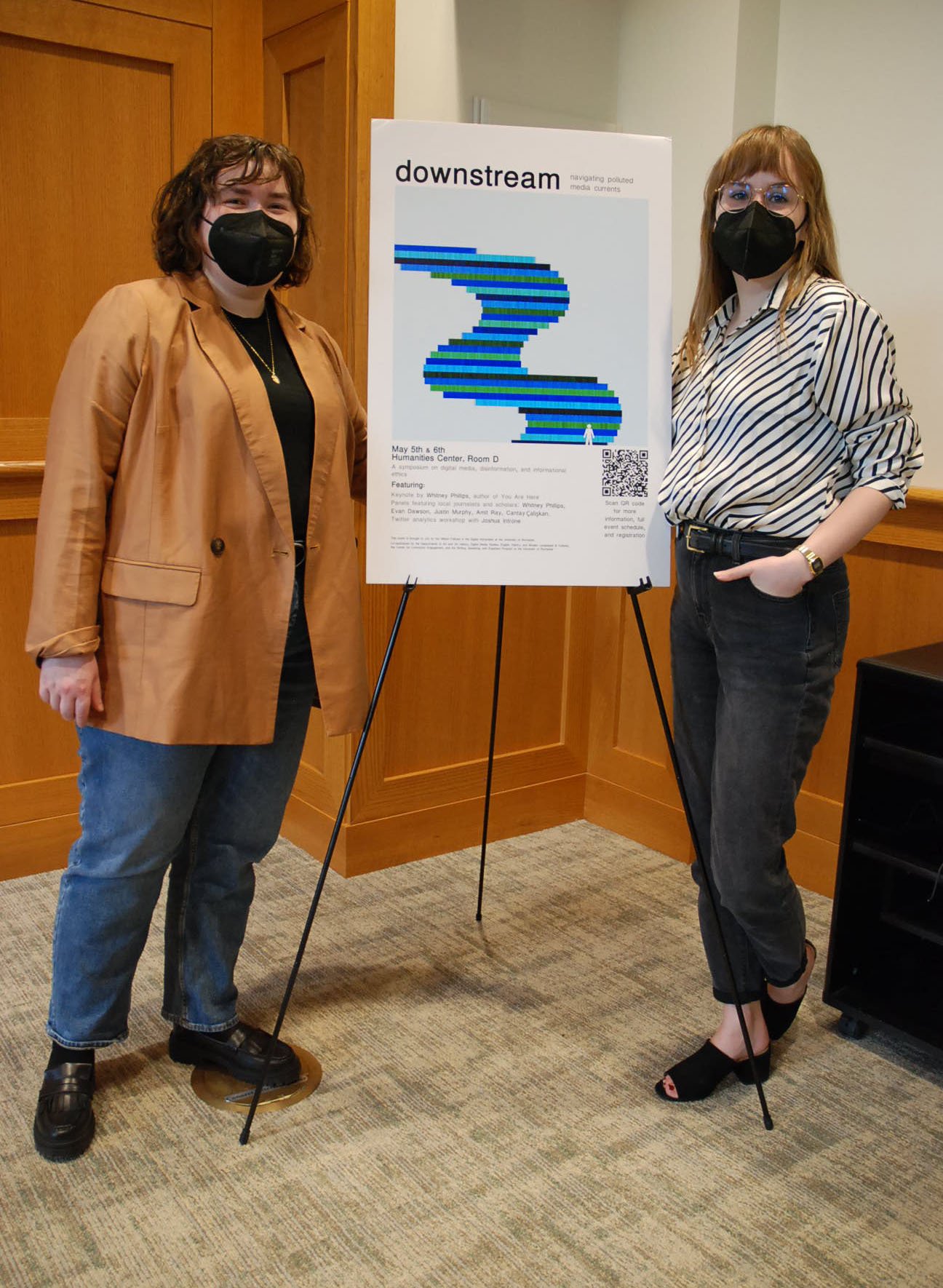Digital Humanities Symposiums
As part of my DH fellowship, the Mellon Foundation funds the organization of a symposium each year. My first year as a DH Fellow was 2021, and everyone was struggling with the fallout of the pandemic. Burnout was intense and participation for such events was low. Our online symposium, “Putting Theory to Practice: A Discussion of Data Feminism,” had strong turnout and facilitated passionate discussion about the politics of data. Organized around the book Data Feminism, the event included authors, D’Ignazio and Klein, as keynote speakers, and a panel of scholars that responded to the book using their own work.
In 2022, we organized “Downstream: Navigating Polluted Media Currents.” With “Downstream,” we were determined to have an in-person conference, as we felt strongly that face-to-face conversation was the only way to productively tackle the complicated issues of mis- and disinformation. In the month leading up to the conference, two panelists decided against taking the risk of traveling via plane, one panelist tested positive for covid two days before the symposium, and another a few hours before he was meant to speak. Despite these obstacles, with keynote speaker Whitney Phillips and workshop leader Josh Introne, the event was successful in fostering a sustained, intense series of discussions about this monumental issue.
Putting Theory to Practice:
A Discussion of Data Feminism
April 22-23, 2021
This symposium was inspired by Catherine D’Ginazio and Lauren F. Klein’s book Data Feminism. It included three events: a keynote lecture with the authors, a graduate student workshop on methodologies and practices of politicizing data in one’s work, and a discussion panel (see image). Collectively, these three events challenged participants to think about data politically, and to incorporate a critical perspective in how data is collected, interpreted, and distributed.
Downstream: Navigating Polluted Media Currents
May 5-6, 2022
Whitney Phillips and Ryan Milner’s 2020 book, You Are Here, offers an ecological framework for the understanding of digital media, emphasizing their interconnectedness and the ease by which “pollution” spreads across networks and communities. Noting the many historical and structural factors that led us here, Phillips and Milner argue that it’s now the users ourselves who must take an informed, ethical approach to our online activities and the effects they might have downstream. Drawing inspiration from Phillips and Milner’s ecological metaphor for our current media landscape, the “Downstream” symposium brought together humanists, social scientists, and journalists to discuss this moment.
The Downstream symposium was a gathering that focused on, and facilitated conversation about, media pollution as a problem that requires radical reformations to the way information flows. To do so, we must speculate on solutions while simultaneously attempting to “make sense” of the cacophonous and rapidly transforming maelstrom of information. The difficulty of this task is precisely what makes it absolutely necessary, because in the end, we’re all downstream, together.
The event included a keynote lecture by Whitney Phillips, two panels, and a workshop led by Josh Introne. Additionally, Wade Keye and myself participated on a popular local radio show, “Connections,” to discuss this topic on a more public forum. The episode can be listened to here. More information about the “Downstream” event is here.







